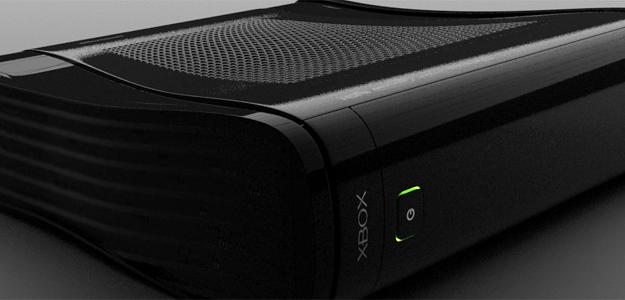 While the device is undeniably real, Microsoft has yet to acknowledge publicly the existence of its next generation Xbox. The Xbox 720, Durango, or whatever it’s ultimately named is out there. Patents filed with the US Patents and Trademark Office describe the apparently scalable video game console; a leaked document detailing Microsoft’s 10-year plan for the Xbox brand also offers up details about the next Xbox; just over one week ago, a Durango development unit was actually put up for sale for $10,000. Meanwhile Microsoft has stayed silent.
While the device is undeniably real, Microsoft has yet to acknowledge publicly the existence of its next generation Xbox. The Xbox 720, Durango, or whatever it’s ultimately named is out there. Patents filed with the US Patents and Trademark Office describe the apparently scalable video game console; a leaked document detailing Microsoft’s 10-year plan for the Xbox brand also offers up details about the next Xbox; just over one week ago, a Durango development unit was actually put up for sale for $10,000. Meanwhile Microsoft has stayed silent.
Not anymore. For the very first time, a Microsoft executive has publicly discussed the Xbox 360’s successor, even if only in passing. Speaking with The Verge, Microsoft general manager Brian Hall discussed Windows 8’s central role in all of Microsoft’s products going forward, including the Xbox 720.
“We just decided it was time to do something new and bring the best from each of those and put them together and release it right in time for the new wave of products that we could have coming out with Windows 8, with the new version of Office, with the new Windows Phone, and the new Xbox,” said Hall.
His statements confirm what’s long been suspected: The closed, iOS-styled new Windows 8 operating system will be a central part of the Xbox 720. Surprising? Hardly. That Microsoft is finally taking steps to discuss that new device is exciting not just for gaming aficionados but retailers and game makers anxious to publicly talk about the future of the industry.
Hall’s statements are particularly notable in light of Tuesday’s other Microsoft-related news: The rebranding of familiar Windows-based games under the Xbox banner. X360A.org (via Eurogamer) reported that the 21st century’s greatest time wasters Solitaire Collection, Microsoft Mahjong, and Minesweeper will all be branded as Xbox Windows games when Windows 8 releases in October. What’s more, all three will now bear 50 points for an Xbox Live profile Gamerscore. There are Achievements for silly things, like getting blown up for the first time in Minesweeper.
Windows 8 is poised to finally sync Microsoft’s living room business with its PC business, an ambition it’s failed to realize with Games for Windows Live and Xbox Live Anywhere in the past. Microsoft believes that this sort of accessibility will appeal to today’s constantly connected consumers, but will game makers flock to the platform? Valve, Blizzard, and other developers are bristling at Windows 8’s suspected restrictions. Will the operating system’s ubiquity across Microsoft’s devices drive those developers to competing platforms?


